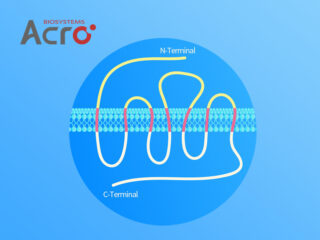
Meta Description: Are you or a loved one seeking inpatient treatment for a behavioral disorder? Here’s what you can expect during the process.
In the US, the rate of mental illness is consistently growing as over one in five adults struggle with a mental health condition. And this isn’t a coincidence or a one-off; numbers by the WHO show that mental health is deteriorating around the world. This can be attributed to a combination of social, environmental, and economic factors. To make matters worse, treatment nonadherence is a growing concern as more people with conditions like major depression, bipolar disorder, and schizophrenia struggle with adherence.
In most of these situations, clients are undergoing outpatient treatment for their condition. In contrast, an inpatient program is designed to provide an environment that’s conducive to recovery. Here’s what you can expect if you or a loved one is seeking inpatient treatment at a Behavioral Health Hospital in Florida.
Interdisciplinary Team Offering Individualized Treatment
While most forms of outpatient care require interacting with one mental health practitioner over the course of your treatment, residential programs are different. Rather, you’ll interact with an interdisciplinary team that includes nurses, physicians, psychiatrists, and behavioral therapists. The purpose of having such a team is that it allows you to get individualized treatment according to your specific needs.
Suppose you struggle with depression and have anxious feelings as well. In this case, you’ll need more than just the typical care provided for major depression. This is where it helps to have an entire team that’s dedicated to providing individualized care as per your needs.
24-Hour Support And Safe From Stressful Experiences
Another core aspect of inpatient treatment is that you receive 24-hour care from professional nurses. This is especially beneficial for young adult clients, as studies show that adolescents and young adults have a higher likelihood of engaging in risky behavior due to overwhelming emotions. When you’re staying at a residential treatment facility, there’s a lower risk of that happening. That’s because there aren’t any sharp objects or illicit substances, and the environment is free from stressors that could potentially worsen your symptoms.
Implementation of Evidence-Based Treatments
When you enroll in a residential treatment program, the process will comprise different evidence-based practices. Your primary therapist and case manager will determine suitable treatments, which can include a combination of individual, group, and family therapy. Some of the approaches that can be applied are cognitive behavioral therapy (CBT), dialectical behavior therapy (DBT), and EMDR therapy. Your therapist may also recommend methods like social skills training, integrated illness management and recovery, and functional adaptive skills training as a way to improve functioning in day-to-day activities.
The reason for including evidence-based practices is that they’re proven effective at alleviating symptoms and reducing dysfunction, depending on your condition.
Complementary Treatments
The program will also offer structured activities and complementary treatments outside the traditional therapeutic setting. You can expect to participate in non-verbal therapies like light therapy, music therapy, and art therapy. Some activities, like acupuncture, therapeutic massage, yoga therapy, and hydrotherapy, are designed to reduce stress levels rather than impacting your disorder directly.
A Holistic Approach To Getting Better
The difference between an inpatient treatment center and a traditional clinic is that they take a holistic approach to ensuring residents’ well-being. That means they don’t just focus on your mental disorder, but improve your physical and mental wellbeing through a holistic approach. To do that, they look beyond your illness and emphasize on aspects like nutrition, fitness, and recreation.
During the program, you’ll receive freshly prepared meals as recommended by a nutritional expert and will receive guidance on what you should and shouldn’t eat. Similarly, a fitness trainer will guide you on the best way to meet your fitness goals and experience the mental health benefits of exercising.
Preparing You To Become Independent
While receiving treatment, you’ll also undergo co-occurring education, such as strategies to prevent relapse and how to become independent. Inpatient care facilities collaborate with social workers to offer employment and educational support so you can become financially independent.
You can also expect to receive life skill training, such as anger management, vocational abilities, and budgeting skills. The aim of providing additional support is to make sure you feel independent and can manage everyday tasks without much worry.
Conclusion
To sum it up, these are some of the things you can expect while seeking care at an inpatient treatment program for behavioral disorders. Although the primary focus of care involves providing evidence-based treatments, your therapist will also recommend holistic treatments while providing support to help you get back to a balanced lifestyle.













